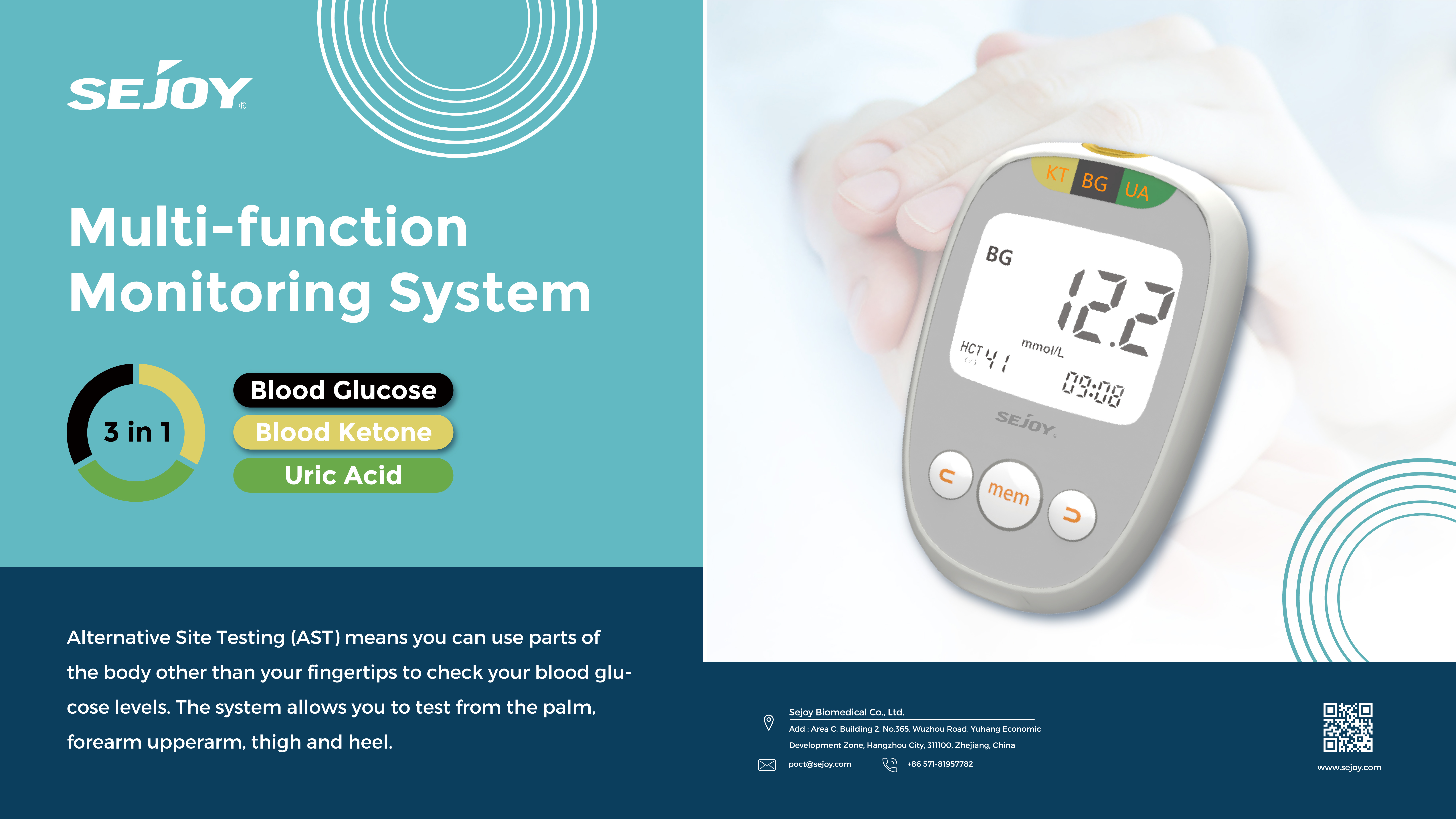1、 Blood glucose and ketoacidosis
Blood sugar is one of the important sources of energy in the human body, but high or low blood sugar can have an impact on physical health. Among them, high blood sugar especially needs to alert us. When blood sugar continues to rise abnormally and cannot be effectively controlled, it may lead to the serious acute complication of ketoacidosis. Ketoacetic acidosis is caused by a severe lack of insulin in the body, leading to accelerated fat breakdown and the production of a large amount of fatty acids, which in turn oxidize to produce a large amount of acetic acid in the liver β – hydroxybutyric acid and acetone, collectively referred to as ketones. When there are too many ketones, the blood pH decreases and the blood hydrogen ion concentration increases, becoming acidic. We call it ketoacidosis. Therefore, it is very important for diabetes patients to monitor blood sugar regularly. Once it is found that blood sugar is abnormally high and cannot be controlled, it is necessary to seek medical advice in time and monitor blood ketones simultaneously to prevent ketoacidosis.
2、 Uric acid issues need to be taken seriously
Compared to blood sugar issues, uric acid issues may be more easily overlooked. High uric acid is a disease that has gradually gained public attention in recent years, and many people do not have a deep understanding of it. When it comes to uric acid, people’s first thought is often gout. However, in reality, high uric acid not only causes gout, but may also lead to other serious health problems, such as kidney damage, cardiovascular disease, etc. Uric acid is the final product of purine metabolism in the human body, mainly excreted through the kidneys. When the level of uric acid is too high, it may deposit in joints, kidneys, and other parts, causing a series of health problems. Therefore, sufficient attention should also be paid to the issue of uric acid, and regular uric acid monitoring should be carried out to timely detect and control uric acid levels.
3、 Comprehensive monitoring and management of blood glucose, blood ketones, and uric acid
Blood glucose, testosterone, and uric acid are important metabolic indicators in the human body, and their changes may have an impact on physical health. Therefore, for patients with diabetes, in addition to paying attention to the blood glucose level, we should also pay attention to the monitoring and management of blood ketone and uric acid. In daily life, diabetes patients can maintain the stability of blood sugar by controlling diet, proper exercise, and keeping good rest. Regular monitoring of blood glucose, blood ketones, and uric acid is also essential. By monitoring changes in these indicators, potential health issues can be identified and addressed in a timely manner, preventing further deterioration of the condition. In addition, targeted treatment and management should be carried out under the guidance of a doctor for patients who have already experienced abnormalities in blood sugar, blood ketones, or uric acid. Effectively control the development of the disease and improve the quality of life through medication treatment, dietary adjustments, and other methods.
In conclusion, the monitoring and management of blood glucose, blood ketone and uric acid is an important means to maintain the health of diabetes patients. By paying attention to changes in these indicators and promptly identifying and addressing potential health issues, we can better protect our physical health.
Post time: May-28-2024



